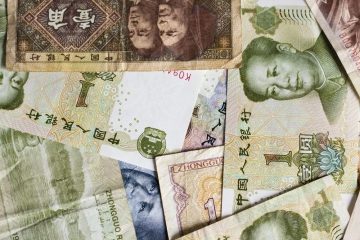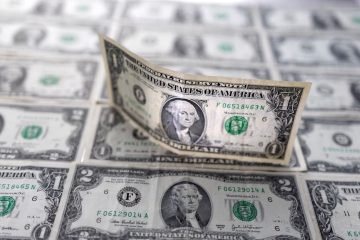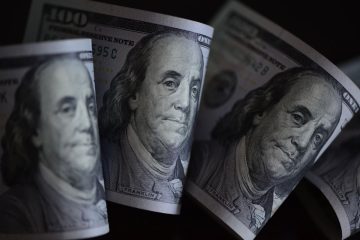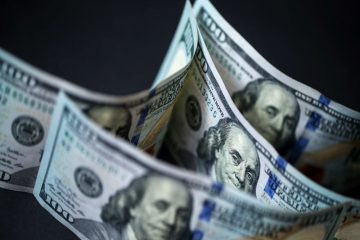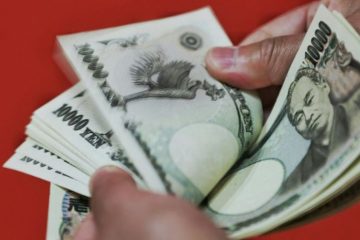Bitcoin “Is A Bubble” but Gold Is Money Says World’s Biggest Hedge Fund Manager

– Bitcoin “is a bubble” but gold is money says world’s biggest hedge fund manager
– Gold is a better “store of value,” Ray Dalio of $ 160 billion Bridgewater tells CNBC
– Bitcoin has climbed over 300% this year on speculation and expectation that it will continue to climb
– Bitcoin is not a valid currency due to volatility and lack of spending ability says Dalio
– Bitcoin is ‘worse than tulip bulbs’ says JP Morgan’s CEO Dimon
– Crypto buyers need to be concerned with government regulations
The manager of the world’s biggest hedge fund, Ray Dalio has declared his preference for gold over bitcoin.
Earlier this week Dalio, of $ 160bn Bridgewater Associates, labelled bitcoin ‘a bubble’. Dalio believes the 300% plus rise in price of the most popular cryptocurrency is down to speculation over its expected price rise, as opposed to confidence in its future role as a currency.
Dalio’s comments come less than a week after J.P. Morgan’s Jamie Dimon said bitcoin “is worse than tulip bulbs” and a month after Professor Robert Shiller said it was the best example of “a bubble right now”.
Bitcoin had a tough week last week, taking a hit following an announcement by Chinese authorities to shut down exchanges. However, it has since begun to recover.
It’s strong performance this year has prompted many experienced investors and economists to call it out for what it seems to be – a bubble.
Bitcoin is not a store of value, it’s a bubble
“It’s not an effective store of wealth because it has volatility to it, unlike gold…Bitcoin is a highly speculative market. Bitcoin is a bubble.”
For Dalio speaking in an interview with CNBC, bitcoin is in too speculative a market for it to become an effective store of wealth. This has long been the case with the cryptocurrency. This is a problem that may well continue and may prevent it becoming a store of value.
Why will this continue? Back in August Dalio expressed concern over investors becoming complacent in markets and how this can then lead to volatility:
… People adapt to the circumstances they have experienced and are then surprised when the future is different than the past. In other words, most people are inclined to assume that the circumstances they have recently encountered will persist, which leads them to change what they are doing to be consistent with that recently experienced environment.
This is what we are now seeing with bitcoin. Traders have pretty much only seen bitcoin rise over the last couple of years. This has come with high levels of volatility, but overall the price has gone up. For bitcoin investors, this is now the norm. This is what they have come to expect.
So they keep pushing the price (and volatility) up because, for now, what on earth else would possible happen?
When asked if bitcoin is in a bubble, evangelists are offended you could ask such a thing. Following Professor Shiller’s comments about bitcoin’s bubbliness we noted an article on CoinTelegraph which was about as far from a far economic argument for something not being in a bubble as you could get:
“Looking at a chart of the growth of sectors that experienced bubbles since 1990, there is a familiar pattern. However, Bitcoin skyrockets off and away from that chart, showing no correlation with the tech bubble, the homebuilders bubble or the biotech bubble.”
So…because bitcoin skyrockets off the chart then it’s not in a bubble.
As Dalio points out, gold is not volatile. Over hundreds of years it has consistently performed according to markets around it. It has rarely surprised anyone, ‘nor has the gold market been accused of any kind of irrational exuberance.
This makes gold an effective store of value. You are rarely surprised by the price of it, you are unlikely to check your gold savings account from one day to the next and find the price down by 40% in less than a week. This is not the case for bitcoin.
Bitcoin is not a currency
“There are two things that are required for a currency. The first thing is that you can transact in it, it’s a medium of exchange. The second thing is it’s a store of value. Bitcoin today…you can’t spend it very easily.
We take these criteria, and we define a bubble based on those criteria, bitcoin is a bubble. It’s a shame – it could be a currency, it could work conceptionally, but the amount of speculation that’s going on and the lack of transaction…”
At this point it would be unfair not to remind Dalio that the bitcoin infrastructure is still relatively young. Of course it is difficult to spend bitcoin as the ecosystem is still in its infancy.
You have to give credit where its due for how far exchanges and merchants have come given the youth of the currency.
However, there are few people actually spending bitcoin. The majority of transactions come from speculators.
This ties into the point above, regardless of how many merchants accept bitcoin if the price can drop by 40% and then recover by 25% (as it did last week) how on earth can I expect to do the weekly shop with it?
Like bitcoin, gold is borderless in terms of where it can be accepted. The difference is that I know the price stability and its long-time role as a medium of exchange.
For bitcoin, this is just not a priority for those trading it on a daily basis. It is just about getting the price up and cashing in on those gains. It is all about speculation for most buyers.
Threat of government
One of the big selling points for early bitcoin adopters was its ability to operate outside of the eyes of ‘the Feds’. In truth, bitcoin transactions are not anonymous, as evidenced by US authorities’ ability to trace various bitcoin users in the past.
However transactions are not easily viewed and take serious work to trace. At present they do not have to be reported to authorities and traders can operate out of sight.
Dalio expressed his doubts that governments will continue to allow cryptocurrency transactions to be managed in such a way.
“the idea that it will be private in terms of transaction…is really questionable if you look at what’s gone on in terms of governments to examine it.”
The most recent attempt by the IRS to unmask cryptocurrency users was when they sued Coinbase and demanded client transaction records.
Jim Rickards recently expressed concern over governments’ interest in bitcoin, writing:
There is every indication that governments, regulators, tax authorities and the global elite are moving in on cryptocurrencies. The future of bitcoin may be one in which Big Brother controls what’s called “the blockchain” and decides when and how you can buy or sell anything and everything.
It is worth mentioning here that if a government is able to get hold of client records legally, then it stands to reason that cyber-hackers can also get their hands on them.
If prying eyes want to have your records then it stands to reasons that they may also be able to track your bitcoin.
Gold will be there in times of need, who knows about bitcoin
This is the second time in recent months that Dalio has shown a preference for investors to own gold.
In August he said clients should move 5% to 10% of their capital to gold as a hedge to the two biggest risk events that were unfolding: North Korea and the (then) looming debt ceiling crisis.
Neither risk has disappeared in the last month. They have perhaps been delayed some what but only at a cost of them being exacerbated further. At the time Dalio was speaking they were the two most imminent threats to financial and political stability.
In the background there were of course all the other disasters-in-waiting. Namely Washington’s inability to get anything done, central banks’ monetary policies for the last decade and, of course, the most bubbly of stock markets, to name a few.
We have no idea how the next few days, months or even years will play out. We are not taking a punt like the bitcoin traders and assuming everything will stay as it is. We are realists and know that the current ‘status-quo’ is just not sustainable.
In the same manner, we know that the current performance of bitcoin is also unsustainable if it expects to be taken seriously as a currency and store of value. For now this seems to be down a long and volatile road.
Given all of the unknowns, we know it is important to diversify and that we should anchor our savings in this ever uncertain and volatile environment.
As Dalio says:
When it comes to assessing political matters (especially global geopolitics like the North Korea matter), we are very humble. We know that we don’t have a unique insight that we’d choose to bet on.
We can also say that if the above things go badly, it would seem that gold (more than other safe haven assets like the dollar, yen and treasuries) would benefit.
So if you don’t have 5-10% of your assets in gold as a hedge, we’d suggest you relook at this. “

